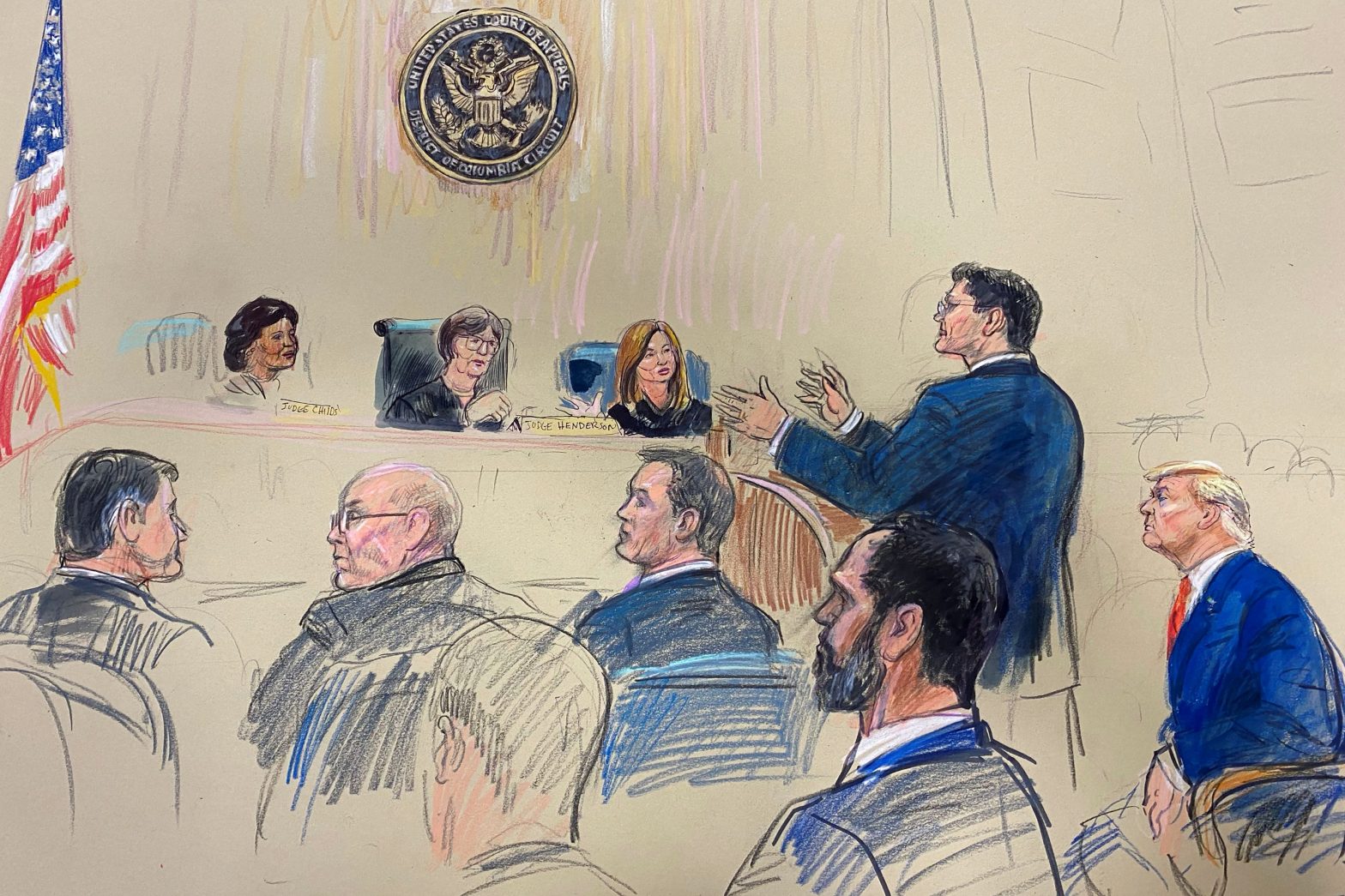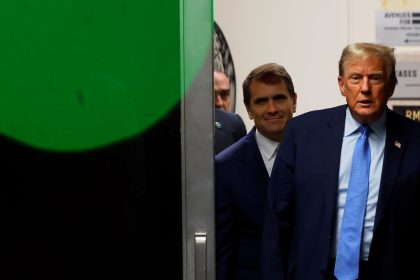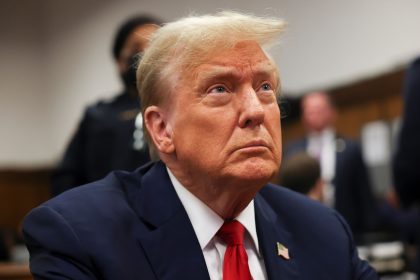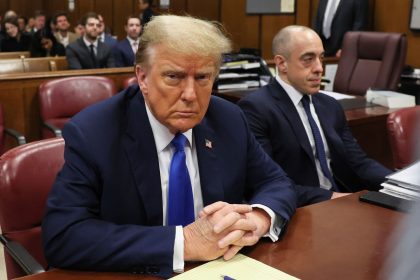Judges Doubtful of Trump’s Claim of Immunity From Criminal Charges

WASHINGTON — Donald Trump’s claims that he should be immune from prosecution were met with skepticism Tuesday by a panel of federal judges in Washington, D.C.
Their decision on his claim of “absolute immunity” as a president will determine whether Trump faces criminal prosecution while he runs for reelection.
He is charged with 91 felony counts in Georgia, New York and in federal court.
Most are related to his role in the Jan. 6, 2021, insurrection at the U.S. Capitol and attempts to overturn the presidential election. Others come from his business dealings and hush money paid to a porn star.
A president who risks prosecution would be inhibited from performing his duties to benefit the United States, Trump’s lawyers told the U.S. Court of Appeals for the District of Columbia Circuit.
Authorizing “the prosecution of a president for his official acts would open a Pandora’s Box from which this nation may never recover,” said attorney Dean John Sauer.
It would likely include a cycle of reprisal by political rivals that would never end, he said.
Without immunity, former President Barack Obama could be criminally liable for ordering drone strikes in the Middle East to protect Americans, Sauer said.
He based his legal arguments partly on the 1803 Supreme Court case of Marbury v. Madison in which Chief Justice John Marshall wrote that the separation of powers set by the Constitution means official acts of a president “can never be examinable by the courts.”
The only way courts could rule on a president’s criminal liability is only after impeachment and criminal conviction by the Senate, Sauer said.
Trump says the criminal charges he faces are rooted in President Joe Biden’s desire for revenge against him.
Justice Department prosecutors said revenge is not an issue. More important is the idea that no one is above the law, they told the appellate court.
They argue that Trump’s words that incited a mob to attack the Capitol and his efforts to overturn the election were not official acts authorized by the Constitution for a president. They were more like his personal campaign to regain the presidency, which means he should be personally liable for crimes he committed, according to prosecutors.
Federal prosecutor James Pearce told the three-judge panel the indictments against Trump reflect “the fundamentally unprecedented nature of the criminal charges here.”
“Never before [have] there been allegations that a sitting president has, with private individuals and using the levers of power, sought to fundamentally subvert the democratic republic and the electoral system,” Pearce said.
He cited the 1974 case of United States v. Nixon, when the Supreme Court said there were limits on the executive privilege of a president. The privilege did not give Richard Nixon a right to avoid a subpoena ordering him to turn over tapes from his discussion in the Oval Office of the White House, the court ruled.
Trump sat quietly next to his attorneys during most of the hearing but became visibly upset as prosecutors said he should have no immunity. He did not address the court or answer any questions.
Judge Michelle Childs mentioned that Nixon was pardoned by President Gerald Ford after resigning from the presidency, which implied “an assumption that you could be prosecuted.”
Judge Florence Y. Pan said Supreme Court rulings imply courts “are supposed to conduct a balancing test” of constitutional interests in deciding a president’s liability. She added that “there’s also executive interest in law enforcement.”
She told Trump’s attorney, “You’re saying a president could sell pardons, could sell military secrets, could order SEAL Team Six to assassinate a political rival.”
Judge Karen L. Henderson, the panel’s only Republican appointee, seemed to agree when she said, “I think it’s paradoxical to say that his constitutional duty to take care that the laws be faithfully executed allows him to violate the criminal law.”
After the hearing, Trump spoke to the media and remained defiant by blaming the Biden administration for prosecuting him.
“I think it’s very unfair when a political opponent is prosecuted,” he said.
The judges did not say when they would rule. Trump would have another chance for an appeal either to the full appellate court or the Supreme Court if the judges at the hearing Tuesday decide against him.
Otherwise, his first criminal trial will proceed on schedule with a March 4 start date.
You can reach us at [email protected] and follow us on Facebook and X.
























